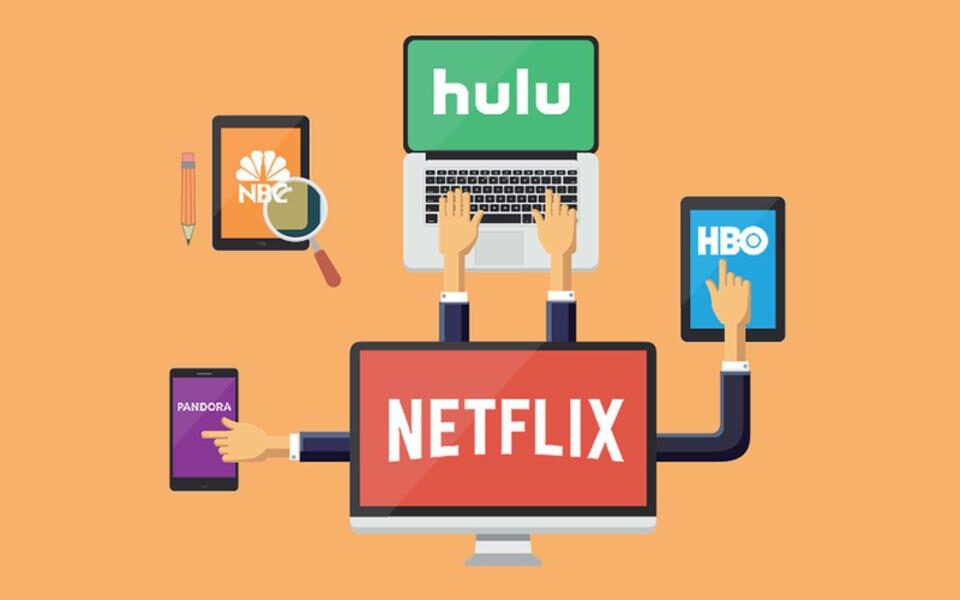How Smart TVs Are Bringing Gaming Into the Living Room

The Rise of 4K and 8K TVs: Do We Really Need Them in the Age of Online Streaming?
August 26, 2025
The Future of Television: Interactive and Personalized Online Viewing
August 26, 2025Introduction
For decades, televisions were primarily designed for one thing: watching shows and movies. Gaming required separate devices like PlayStation, Xbox, or PCs. But in recent years, Smart TVs have changed the rules of the game—literally. With the rise of cloud gaming platforms and internet-powered entertainment, Smart TVs are now evolving into multi-purpose hubs that combine streaming, browsing, and gaming into one device. This shift is transforming the living room into the ultimate entertainment space, where anyone can enjoy both Netflix and high-quality gaming on the same screen.
Cloud Gaming: No Console Required
Traditionally, gaming required expensive consoles or PCs with powerful hardware. But cloud gaming has disrupted this model. Services like Xbox Game Pass Ultimate (xCloud), NVIDIA GeForce Now, and Amazon Luna stream games directly to your TV over the internet. Instead of rendering graphics locally, the game runs on remote servers, and the visuals are streamed to your screen in real-time.
This means you no longer need to buy a console to play modern titles. As long as you have a Smart TV, a controller, and a strong internet connection, you can access libraries with hundreds of games. It’s the same convenience that streaming brought to movies and shows—instant access without bulky hardware.
Smart TVs Designed for Gamers
Manufacturers are embracing this shift by optimizing Smart TVs for gaming. Many modern models come with:
- Low latency modes: Reducing input lag for smoother gameplay.
- High refresh rates (120Hz+): Essential for fast-paced action.
- HDMI 2.1 ports: Supporting higher frame rates and better graphics.
- Variable Refresh Rate (VRR): Eliminating screen tearing.
Some TVs even have dedicated gaming dashboards, letting users track frame rates, enable game mode, or customize settings with a few clicks. Samsung, for example, has launched its own Gaming Hub, which integrates multiple cloud gaming services directly into the TV’s interface.
The Role of Internet Speeds
Of course, cloud gaming success depends heavily on internet quality. While streaming a movie requires a stable 15 Mbps connection for HD or 25 Mbps for 4K, streaming a game needs more—plus extremely low latency. Lag or buffering can ruin the gaming experience in ways that don’t affect video streaming.
This is where advancements in fiber internet and 5G technology are crucial. As global internet speeds continue to improve, the barriers to cloud gaming will gradually disappear, making Smart TV gaming more seamless and accessible.
Accessibility for Casual Gamers
Another advantage of Smart TV gaming is accessibility. Not everyone wants to invest in a full gaming setup, but many enjoy casual or occasional play. Cloud gaming allows these users to jump in without a huge upfront cost. Parents, for example, can let kids play family-friendly titles without worrying about consoles or discs.
In addition, subscription-based models like Xbox Game Pass provide incredible value—hundreds of games for a monthly fee. This mirrors the streaming subscription model, making gaming more flexible and budget-friendly.
Hardcore Gamers vs. Casual Gamers
While Smart TV gaming is great for casual players, hardcore gamers may still prefer consoles or PCs. Competitive esports players need the highest possible frame rates, custom hardware, and the ability to upgrade components—things Smart TVs can’t provide yet. However, as technology evolves, even hardcore gamers may find cloud solutions more attractive, especially if platforms deliver consistent 4K/8K gameplay with minimal latency.
The Future: TV as a Gaming Console
Looking ahead, the line between TV and console will blur even further. Instead of buying separate hardware, your Smart TV could be the only device you need. Imagine purchasing a game online and instantly streaming it to your TV without downloads or updates. This is already happening in early stages, but in the future, it could become the default.
Integration with VR headsets and motion controls could also expand TV gaming into new areas, making it even more immersive. Smart TVs may eventually act as full-fledged gaming ecosystems, rivaling traditional setups.
Conclusion
Smart TVs have evolved far beyond their original role as viewing devices. With cloud gaming, high refresh rates, and integrated services, they are redefining the living room experience. Gaming is no longer locked behind expensive consoles—it’s becoming as accessible and convenient as streaming a show on Netflix.
While challenges like internet speed and latency remain, the future is promising. As technology improves, Smart TVs will likely replace consoles for many households, creating a true all-in-one entertainment hub. In the age of online TV, your screen is no longer just for watching—it’s for playing, exploring, and connecting to a digital world of limitless possibilities.





